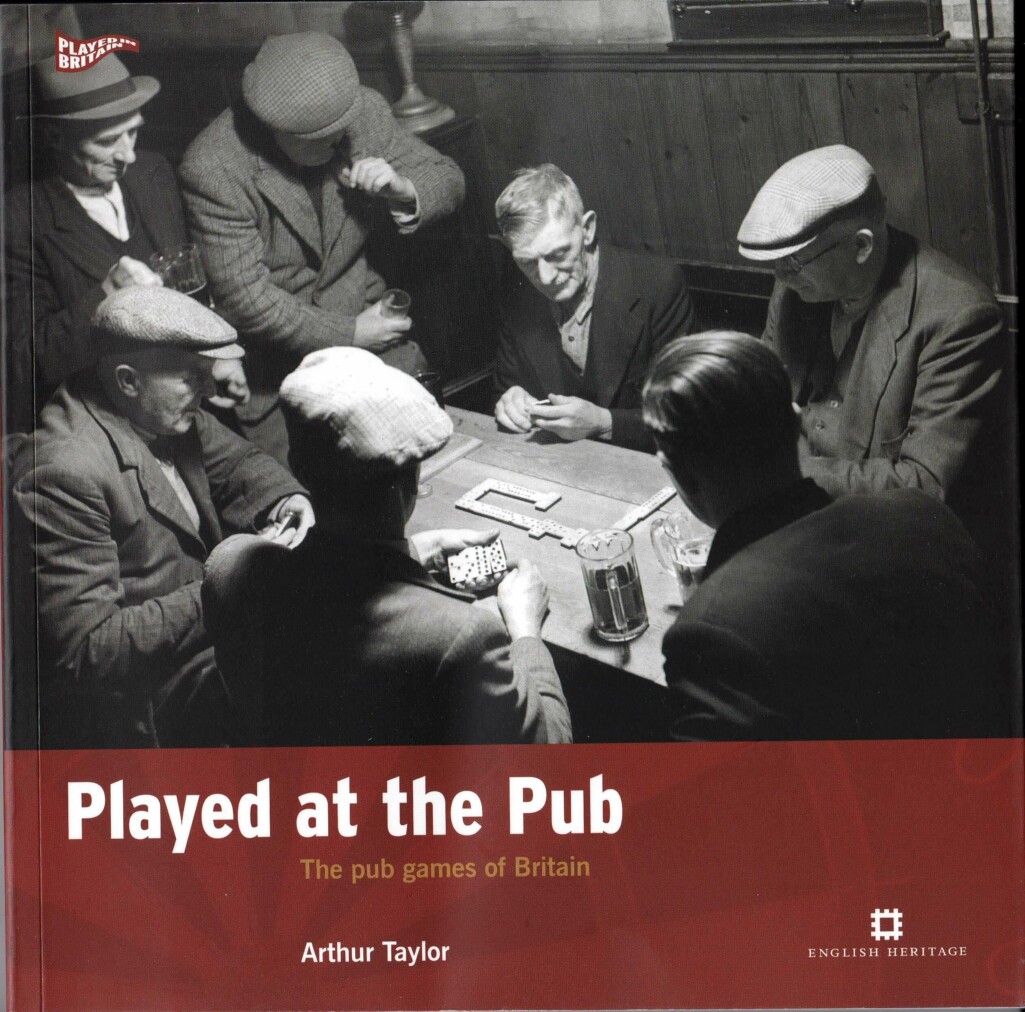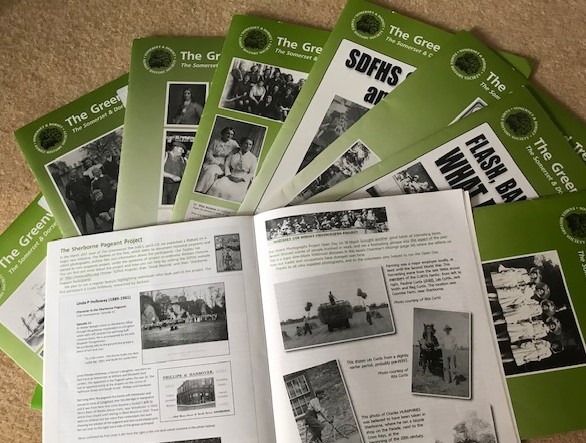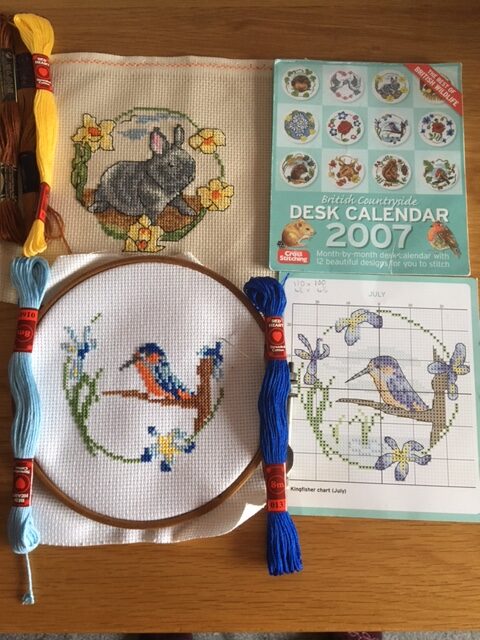Keeping Occupied – Your Tips
Posted on 9th February 2021
Thank you for all the helpful tips that have come my way following my recent request to find out how you have been keeping yourselves occupied – my what an industrious lot you are!

Barry: Barbara’s Blog post reminded me of how much I am missing a trip to the pub. Not just for the beer, but as a place to play some of those games she found in the charity shop. If the same thought occurred to you, then a partial solution might be to find a copy of a wonderful little book by Arthur Taylor, called Played at the Pub– it tells you everything you ever wanted to know about any game that was every played in a pub, and its history. Dominoes, darts, skittles, card games of all sorts, and that more recent innovation, the pub quiz. This book could well fill in one or two happy hours. Apart from that, and work on your family history, what about a bit of transcription? I’ve been transcribing some old records for a project I’m working on, and I’m sure that the Society would welcome the offer of help on this front – contact [email protected]. And if you are finding it hard to get to sleep, then there’s nothing quite like an hour or two transcribing, to make the eyes feel heavy and send you happy off to bed!
Paul: My family history research provided me with a “springboard” into Victorian social history research. My initial reaction to three generations of my maternal family (PARSONS) was one of disappointment as to why they had not bettered themselves from being Agricultural Labourers, however, online studies showed just how difficult life was for the poor in Victorian England. I can thoroughly recommend the website futurelearn.com which has about 800 courses on a large variety of subjects run by various universities. The best news is that they are FREE, unless you want a certificate of completion £49 – but as a pensioner I have no need of certificates. Courses are typically 3-4 weeks and you normally have an extra two weeks to complete them on the free option.
I have personally found many of the topics on offer informative enabling a light to be thrown on the working lives of my ancestors who I now appreciate did exceptionally well just to survive from one week to the next with no NHS and no Social Security.

Christine: I had run out of books to read (and not very fond of reading books from a computer screen); while tidying my family research corner I looked at my back copies of The Greenwood Tree and thought I would re read them. I found many interesting facts and information applicable now many years later and could apply them to my current research. I would advise anyone to revisit their back copies.
Graham: Something I need to do when I have cleared the decks is finish scanning my family photographs and distribute the files to interested family members. I also have to write up what I know about family members. Some might have to be redacted as sometimes you know, or find out, too much. Always difficult to keep things quiet in a small village!

Dorothy: Looking for something to keep me from being idle I discovered this cross stitched Desk Calendar from 2007. I have a plentiful supply of embroidery cottons in every colour imaginable, I found a supply of suitable material in various shades, and online I was able to purchase the cards with the correct aperture and envelopes. The rabbit is reserved for an Easter card, the Kingfisher under construction for a Birthday and the Doves will be suitable for a wedding anniversary. I can just keep going, there is always Christmas cards that I can produce from three of the cards and endless Birthday creations.
John: Geneamusings is a very informative busy site – features genealogy research tips and techniques, genealogy news items and commentary, genealogy humour, San Diego genealogy society news, family history research and some family history stories from the keyboard of Randy Seaver (of Chula Vista CA)
Liz: Start a local history project (I’m researching Dunster Hospital) such as researching your local war memorial.
Do some transcribing for a family history society or a project that someone else has already started (I’m transcribing the 1910 Valuation Act field books for the Early Dunster Project)
If you live near a local cemetery, walk round it for your daily exercise. You could even research someone buried there. (I’ve done lots of this – and made an application to Guinness World Records for one of them!) Or teach yourself about graveyard symbolism? (My aunt and I have a cemetery walk every week – we choose a different symbol to look for each time, and read about its meaning) https://headstonesymbols.co.uk/
Have you added social and local history to your biographies of your ancestors? Why not research an aspect of their lives that you haven’t looked into, like an occupation or cause of death? (I’m researching monumental masons, as I’m spending a lot of time in the cemetery!)
Check out Eventbrite for history-related online talks – many are free!
Have another look at your brick walls, especially those you haven’t looked at for a while. Looking with fresh eyes may help you see something you missed before. Have any new records come online since you last looked?
Start a blog for your family history – there are several free options available
Research the inhabitants of a street where one of your ancestors lived. Who were their neighbours? Or you could research your own house/street
I find The National Archives’ online archive jigsaws great fun and good stress relief. You can see some here http://www.nationalarchives.gov.uk/boredom-busters/archive-jigsaws/
Write an article for The S&DFHS blog
I particularly like Liz’s last suggestion. Have you ever considered writing a blog? – I think my next task is to write a blog about writing a blog to encourage you to give it a try – watch this space.
As a PS to Liz’s suggestion of a walk around a local cemetery her nomination to the Guinness World Records has been accepted and she says “I’m so proud of this chap, imagine signing up aged 71 (he may even have been 72) to serve in WW1. It’s been interesting applying to Guinness World Records, they came back with a couple of queries, and although I thought I had a watertight case, I couldn’t let myself get too hopeful in case they didn’t agree. I can’t wait to tell the “Friends” of the cemetery.
Well done to all and thank you for these contributions – anyone else with a tip please add as a comment at the end of the blog as we would love to hear from you.
Barbara Elsmore
If you would like, please send us your comment.
Comments
28 July 2021
Jennie: Like Christine I have found the Greenwood Tree very helpful. I decided I would like to re-read a book that I had bought after a society AGM in Somerset some years ago. I could not find it on my book shelves where I had assumed it would be. It became an obsession as I remember what a good read the book was. I asked members of the society if they could remember a speaker in Somerset who had written a book about a family who lived in India and then New Zealand nobody could remember. I then thought the lady who might have come to the AGM with me might remember, she did better than me saying she remembered the talk and that it was near Frome and that we had driven through Shepton Mallet on our way. I googled large house between these places and one of the results was Marston House which I immediately recognised. So that meant that the Frome group must have organised the AGM but they have folded. Ted Udall had recommended looking at the 40 years of the Greenwood Tree which I had bought on a memory stick when it first came out and had never looked at. I went through it and after a very short time came across the report of the AGM at Marston House and then I had the name of the speaker Helena Drysdale and the book was called Strangerland. I have now ordered it and another book by Helena called Dancing with Death another story from her family history. The best part of the research was finding what a wonderful resource the memory stick is and I will be looking through it with interest.
15 Feb 2021
Mary: I have lived in the same village of Merriott all my life and can remember the 1940s. I have made a list of all the shops which we had in the village, quite a number compared to today. I thought it would be something of interest for the family to keep. At that time it included two barbers, two butchers, two bakers, three cobblers as well as two garages, three grocers, two haberdashery shops and a fish and chip shop. We really were self sufficient in those days.
12 Feb 2021
Michael: Last year I inherited an album of old family photographs dating from the 19th century. Needless to say none was identified – so frustrating. I used my enforced isolation during the first lockdown to sort them out and to capture digital images which I posted (in batches of 10) in the Society’s group on Facebook. Other members said they found them intrinsically interesting, and some individuals have been identified – enabling me to connect them to my family tree. People were so helpful.
The lesson for me in this has been to always write on photographs who they depict. If you are writing on the back of a photograph it is best to use a pencil. I am now going through all my own old photos doing just this so that in the future people will know of whom they are.
